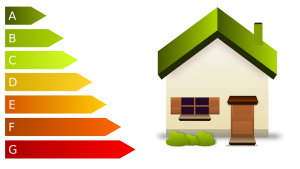Too Many Requests from Your Network
Please complete verification to access this content.
As Thailand continues to navigate through economic shifts and global financial influences, understanding the dynamics of mortgage rates is crucial for both homebuyers and investors. This article delves into the current state of Thai mortgage rates, factors influencing these rates, and projections for the year 2025, providing insights for Thai readers looking to make informed decisions about their housing finance.
Current Scenario of Mortgage Rates in Thailand
In recent years, Thailand’s mortgage market has been influenced by several key factors:
-
Economic Recovery Post-Pandemic: Following the economic downturn caused by the global health crisis, Thailand has seen a recovery, albeit uneven across sectors. The Bank of Thailand (BOT) has been cautious with its monetary policy, balancing economic stimulation with inflation control.
-
Interest Rate Environment: The central bank’s policy rate directly affects the cost of borrowing. As of early 2024, the BOT maintained a relatively low policy rate, aiming to support economic growth. However, global economic conditions and domestic inflation pressures have led to expectations of gradual rate adjustments.
-
Real Estate Market Dynamics: The Thai property market has shown signs of stabilization with property prices in urban centers like Bangkok still high, yet the pace of price appreciation has moderated. This affects mortgage rates as banks adjust rates to reflect the risk associated with property loans.
Factors Influencing Mortgage Rates
Several elements play a pivotal role in shaping mortgage rates in Thailand:
-
Bank of Thailand’s Monetary Policy: The central bank’s decisions on the policy rate are fundamental. Lower rates encourage borrowing, whereas hikes are aimed at controlling inflation but increase borrowing costs.
-
Inflation Rates: Inflation impacts the interest rates set by banks. If inflation rises, banks might increase rates to maintain the real value of returns from loans.
-
Economic Growth: Strong economic growth typically correlates with rising interest rates as demand for credit increases. Conversely, in times of economic slowdown, rates might be lowered to stimulate borrowing.
-
Government Policies: Initiatives like tax breaks on home loans, subsidies, or reforms in housing finance can influence mortgage rates by altering the risk and demand landscape.
-
Global Financial Environment: International interest rates, especially from major economies like the US, influence Thai rates due to capital flows and currency exchange rates.
Predictions for 2025
Looking ahead to 2025, several trends and predictions can be made based on current economic analyses:
-
Gradual Rate Increases: Analysts from institutions like the National Association of Home Builders predict that Thai mortgage rates might average around 6.64% in 2024, with a slight decrease to about 5.86% by 2025, assuming global economic stability. This projection considers a scenario where inflation is managed, and economic growth remains steady.
-
Continued Low Rates for Government-Backed Loans: Programs like the Government Housing Bank might continue to offer lower rates to first-time homebuyers or those in affordable housing schemes, potentially keeping some rates below the commercial average.
-
Increased Competition Among Banks: As the market stabilizes, competition among financial institutions might lead to more attractive mortgage products, possibly with flexible repayment options or rate discounts for early repayment or loyalty programs.
-
Technological Advancements: The adoption of fintech in banking could lead to more personalized mortgage products. AI-driven risk assessments might allow for more competitive rates for borrowers with excellent credit profiles.
-
Sustainability Linked Rates: With a global push towards sustainability, there might be an introduction of green mortgages with favorable rates for energy-efficient homes, influencing the rate structure.
Implications for Homebuyers and Investors
-
For Buyers: Those planning to buy should consider locking in rates before any potential increase or look into fixed-rate options if rates are expected to rise.
-
For Investors: Real estate investors might find 2025 an opportune time to refinance existing properties if rates drop, or invest in property development if financing becomes cheaper.
-
Market Sensitivity: Being sensitive to policy changes and global economic cues will be crucial. Potential homeowners should stay informed through economic forecasts and central bank announcements.
Conclusion
The Thai mortgage market is poised for nuanced changes by 2025. While rates are expected to slightly decrease from their current levels, the key for Thai borrowers will be to leverage this environment through strategic planning, whether in securing loans or refinancing. The blend of domestic economic strategies with global influences will continue to shape an environment where both caution and opportunity coexist.




